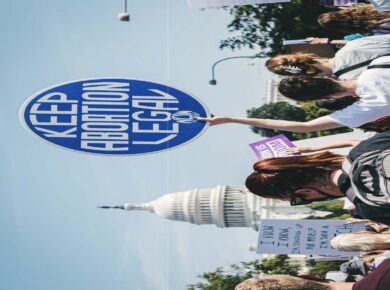Written by: Liza Kinnear
Disclaimer: This blog post solely reflects the opinion of the author and should not be taken to represent the general views of IPPR’s management team or those of fellow authors
Luke Harding, author of “Collusion: Secret Meetings, Dirty Money, and How Russia Helped Donald Trump Win,” lived and worked in Moscow, Russia as a foreign correspondent for The Guardian from 2007-2011.
Luke Harding, a foreign correspondent working for The Guardian, gave a talk at UCL on February 8th. Since working in Moscow between 2007 and 2011, Harding has become well-known for his reporting on Russian affairs- perhaps driven recently by his unceremonious expulsion from Russia in 2011. That year, Harding released “Mafia State: How One Reporter Became an Enemy of the Brutal New Russia,” shedding light on his experiences living in Russia and his eventual eviction from the country. The talk, however, covered a more recent scandal, and was premised on Harding’s latest book – “Collusion: Secret Meetings, Dirty Money, and How Russia Helped Donald Trump Win.”
The talk detailed Harding’s life in Moscow, which illuminated his stance on the alleged Russia-Trump collusion before the 2016 US election. Harding spent much of the talk focusing on Russian KGB (now FSB) scare tactics, which he argued played a major role in Trump’s rise to power. To explain the plausibility of this collusion, Harding insisted that we must go back many years- to Trump’s first visit to Russia in 1987. At this time, the Soviet government invited Trump to visit Moscow on an all-expenses-paid trip. “The people who arranged this were Intourist [the Soviet Union’s official state travel agency],” however according to Harding, it was considered common knowledge that the agency was essentially run by the KGB. Harding went on to suggest that this demonstrates long-term Russian interest in Trump, with leaked papers revealing why Trump might originally have become a person of interest- there was a need at the time to recruit Americans. A KGB personality questionnaire that was circulated around the agency highlighted the need to find people who matched certain characteristics. The KGB were looking for someone “vain, ambitious, narcissistic, adulterous… and Trump ticked every box”.
6 weeks after Trump’s trip to Moscow, Harding notes that Trump “took out a series of front page adverts in various newspapers, criticising Raegan and announcing that he is running for president.” To Harding, this demonstrates the subliminal power of KGB tactics. The journalist argued that the KGB identified Trump as a target decades ago, before embarking on a “journey of courtship” that would eventually help him into the White House. Harding thus suggests that a long backstory of courtship is an important factor in the alleged collusion.
In 2013, Donald Trump attended the Miss Universe contest held in Moscow, a moment which Luke Harding believes is significant to his eventual assent to presidency. He insisted that typical KGB monitoring techniques were used on Trump during his stay, which may have given Russia significant leverage over Trump. “Why is Trump always nice about Putin?” Harding questioned the audience. “Why will he never criticise him? Does Russia have compromising material on Trump?”
To demonstrate the influence of KGB tactics, Harding paused to tell an anecdote from his own life in Moscow. Working as a foreign journalist, Harding became a prime target for surveillance, particularly due to his critical stances on major Russian political issues. After a break-in at his Moscow flat, Harding became aware that secret cameras had been installed and the FSB were carefully monitoring his private life. Harding noted several instances when his phone connection was disrupted during conversations regarding sensitive matters, and recalled a time when he came home to find the previously closed window beside his son’s bed left wide open- a gesture which he understood to be a warning from the FSB. More amusingly, Harding spoke of a time when a small gift was left on his bedside table after a family holiday- a sex manual, with a section about orgasms earmarked. Although Harding appeared to see the humour in these scare tactics, he insisted that his own personal experience of surveillance demonstrates the proficiency of the Russian security services in finding a person’s vulnerability and using it against them.
Thus, according to Harding, a combination of the 2016 hacking, economic ties between Trump and Putin, and possible surveillance by the Russian security agency all assisted Trump in winning the presidency. However, Harding insists that “Putin didn’t think Trump would win”- rather, he was used to discredit Hillary Clinton and weaken her power, leaving Russia to do what they wanted in the global arena. Millions voted for Trump and “we can’t say Trump won thanks to Putin, but Putin did push him over the finish line.”
While some suggestions may seem slightly far-fetched (what information could Russia have on Trump that would damage his international reputation even further?), Harding’s talk gave an interesting insight into his own experiences living in Russia and provided ample material for a lively debate about the likelihood and effect of any collusion.






